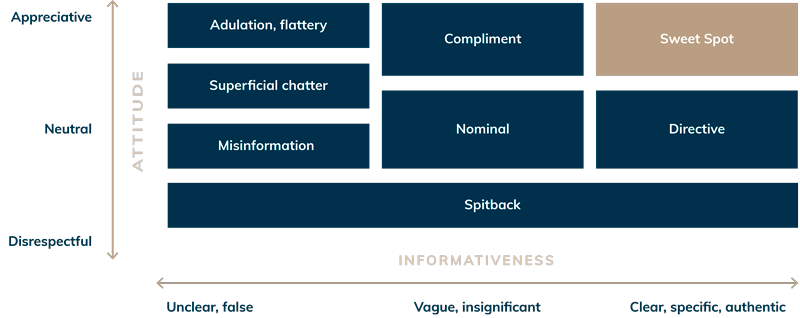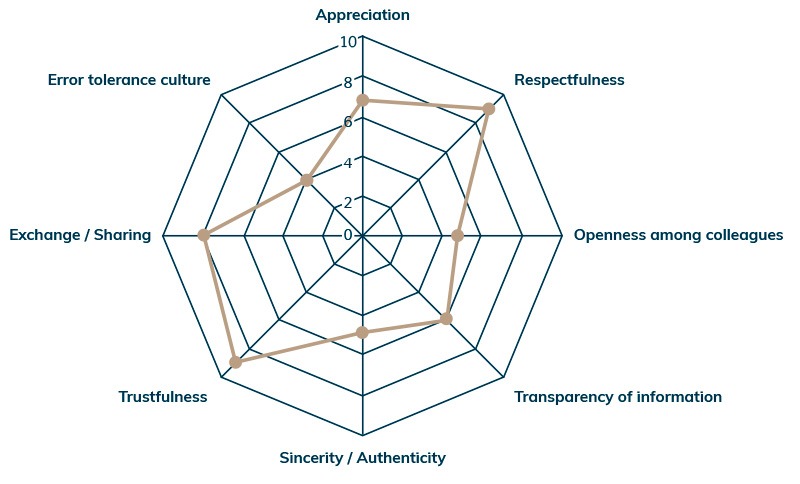Leadership must support the resonance in the company. Feedback is one of the most effective ways of promoting this resonance. As simple as the rules for good feedback are – they are often ignored in daily business. But future-oriented leadership requires competent feedback. In our »Leadership of the Future« series, we have so far presented the following impulses for leading the working world of tomorrow:
- The leadership of the future – the leader as relationship manager (part 1)
- Neuroleadership – leading with the findings of brain research to promote performance (part 2)
- Developing and strengthening employees – with »Positive Leadership« (part 3)
- Solution-focusing leadership (part 4)
Good feedback is clear and appreciative
Good feedback must be received in order to be effective. It is therefore both clear and appreciative. In the feedback matrix, the »sweet spot« for good feedback lies in the upper right quadrant.

Good feedback is by no means “sugar-coated” – but always clear and authentic. Mere appreciation without information often dilutes to adulation – and is not valuable for the receiver of the feedback. The feedback provider may even be suspected of manipulation. – “He just wants something from me!” – But it is also true: If there is no appreciation and respect when giving feedback (so-called »spitback«), the recipient understandably goes into a defensive attitude: No matter how accurate the feedback may be – without appreciation it will not be received well by the recipient.
Appreciative = sugar-coated?
Many managers still have old-fashioned and confused ideas about good feedback in their minds. We want to clear up these misconceptions: The biggest misconceptions about appreciation: Why praise is sweet poison and how appreciation can be expressed in a clear and authentic way (article available in German only):
- Misconception 1: Appreciation is only for wimps
- Misconception 2: Appreciation, recognition and praise are the same
- Misconception 3: Everything is feedback
- Misconception 4: Clear announcements cannot be made appreciatively
- Misconception 5: Sandwich feedback is good
- Misconception 6: Praise is always good
- Misconception 7: Recognition at eye level is difficult
What »resonance space« for feedback does your company offer?

The way in which feedback is experienced as appropriate depends strongly on the corporate culture (or industry or department culture). What is still considered “sporty” in one area may already be seen as disrespectful in another. And what is perceived as well-formulated in one department can be perceived as “blurred” or stilted in other parts of the company.
Business book »Führung: Feedback auf Augenhöhe« (German edition)
How do I say it clearly and respectfully? – Many managers ask themselves this question when it comes to feedback. Our latest »business essential« from publisher Springer Gabler contains the most important information on the subject of feedback: It provides manageable and practical answers. It shows how you as a manager or colleague can give constructive feedback that expresses recognition and appreciation. The most important takeaways, a checklist for your next feedback and other bonus material can be found at www.agateno.com/feedback (currently available in German only).
Further information on the book: https://www.agateno.com/fuhrung-feedback-auf-augenhohe/
Photo credits: © shutterstock.com | Rawpixel.com
